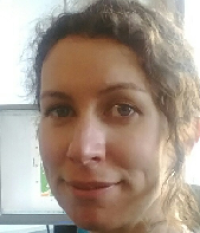illustration Henk van Ruitenbeek

Matthijs van der Ham, first-year Master’s student of Biotechnology
‘I know the WUR Council exists but I don’t know what it does; it’s invisible
. I know more about the Student Council and its advisory and monitoring role. As a member of a student society you mostly hear about VeSte, because they go around the societies. It is important, for instance, that they concern themselves with the issue of evening lectures, which are not good for your development as a student. And it would be good if the WUR Council talked to the executive board about how to encourage students to join in extracurricular activities, so they can develop outside their studies. My advice is to make the WUR Council more visible, in any case. Use social media and organize things like informal lunches downstairs in the Forum.’

Katell Hamon, researcher at Wageningen Economic Research
‘I have more idea what our own Works Council does that what the WUR Council does. Our location in The Hague and our lack of direct involvement with students may be factors there. Presumably an issue like the evening classes is discussed by the WUR Council. Our Works Council keeps us updated on what is going on in our institute, with a newsletter every two to three months. Something I feel the WUR Council would do well to place high on its agenda is the implementation of the One Wageningen vision. In practice, with all the red tape and separate budgets, the organization still isn’t geared to better collaboration between institutes, let alone with the university.’

Hugo Besemer, information and data specialist at the WUR library
‘What the WUR Council does, I have no idea actually. Although, I guess one thing they look at is the tenure track system, because we were asked to provide data on that. During the period when I shared an office with someone from the WUR Council, I sometimes heard something about what was going on, but I don’t anymore. I only hear something occasionally from the Works Council at Facilities & Services. If the WUR Council wants to play its part properly as a representative body, it will have to improve on its visibility by reaching out to people. One factor is the way WUR has changed from a village to an agglomeration. With the WUR Council you are more likely to shrug and leave them to it. It might be an idea for them to give some thought to how to prevent people feeling lost in this organization?

Diane Bosch, advisor at the Centre for Development Innovation
‘I know of the existence of a WUR Council, and because I have been on the Works Council of another organization myself, I know what a Works Council can do in theory. But the consultative bodies here probably do different things than we imagine. Because of your question I made a point of looking on the intranet, but I couldn’t find much that was recent – which is an indication of its visibility. But I think that’s just as much of a problem in the various parts of the organization. In the newsletters of the Works Council of the SSG I saw a “last call for new people”. But if you don’t know what you are being asked to do, and what the issues are, you are not going to sign up. And yet I think it’s terrible, actually, that I know so little about it. It is not called a consultative body for nothing.’

Ward Koehler, third-year Bachelor’s student of Biology
‘Whether you know anything about the consultative bodies depends on how involved you are yourself, I think. I am on the programme committee for Biology. So last year I attended an evening for students involved in degree programmes, which was organized by VeSte. Through those sorts of activities you automatically end up talking to Student Council members. But I have never heard of the WUR Council. To make themselves more visible the members should get out and about more, like politicians do, and the media – in our case Resource – could report on their activities better.’

Rob Schouten, university teacher at Horticulture and Product Physiology
‘What the WUR Council is and what it does for me, I have no idea. Is it the central consultative body? If so, why don’t they make that clear from the name? By the same token, it could be a group of outsiders who advise WUR. To have a consultative body with both students and staff seems useful to me. One of the issues I would want them to address is improving the collaboration between Wageningen Research and the university. At a personal level people have contact, and interesting ideas get developed, but joint research often gets stranded for lack of funding. There must be another way of going about it. And then there is tenure track and the rules that sometimes get changed without warning. I see colleagues struggling with the pressure they are put under, and the insecurity about contracts.’

Beatrice Landoni, second-year Master’s student of Plant Sciences
‘I consider myself quite an active student but I’ve never heard of the WUR Council. I have heard of the Student Council, but I don’t know what they do exactly. Perhaps the Student Council could seek more contact with students and emphasize the links with the other consultative bodies? For the sake of visibility a regular feature in Resource might be an idea, or a newsletter.
Read too:
WUR Council not visible enough
News – 23 March 2017-Wageningen has consultative bodies for students, university staff and…
